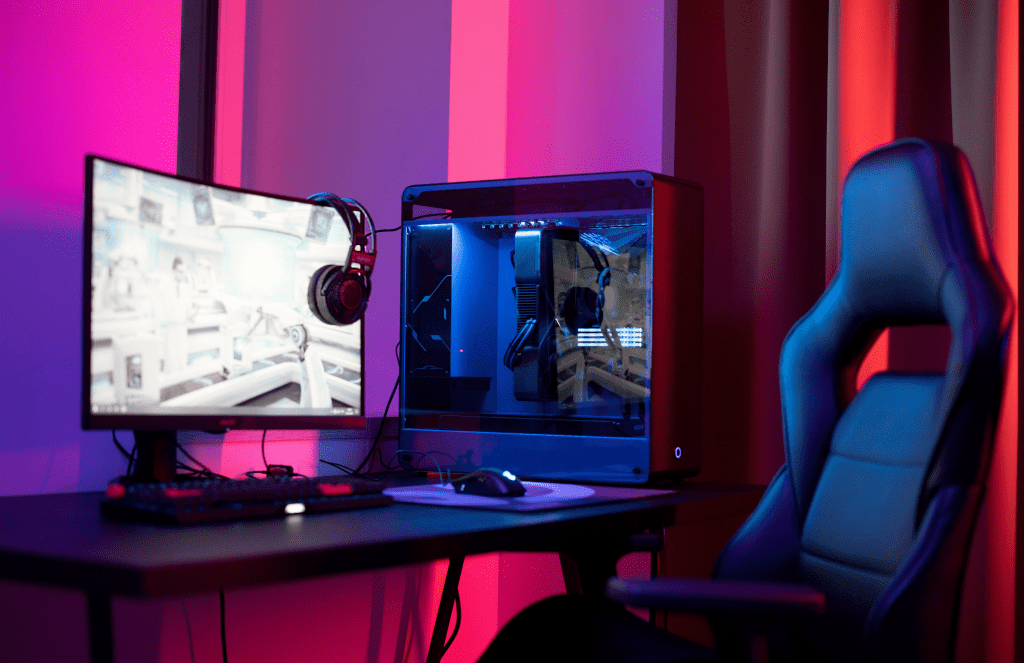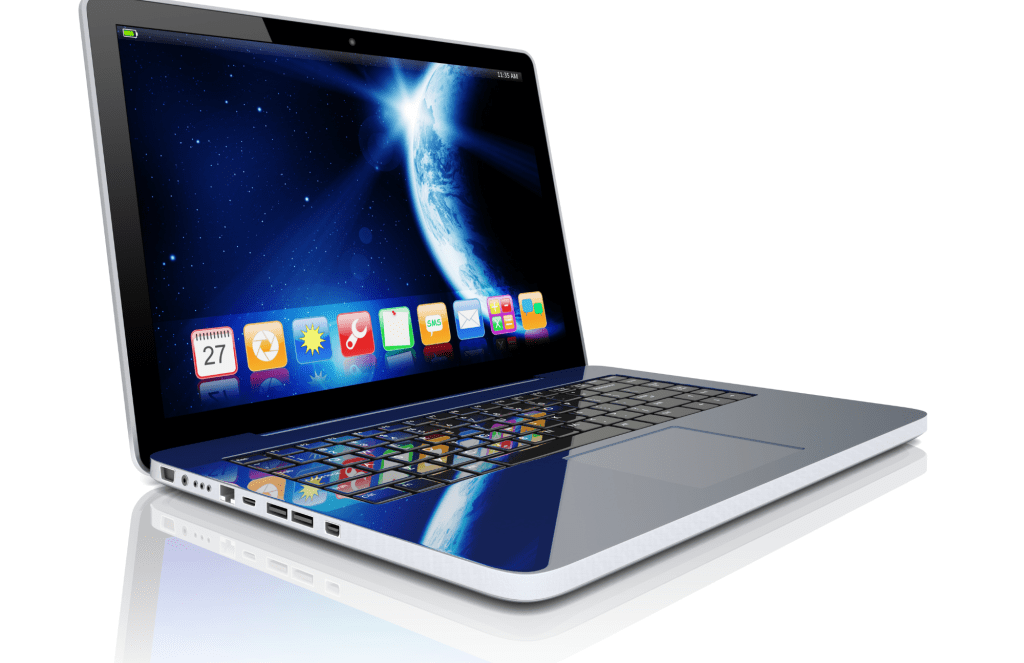Laptop or Desktop: Which Is Right for You? Leave a comment
Introduction
When it comes to buying a new computer, one of the first decisions you’ll need to make is whether to go for a laptop or a desktop. This choice will have a significant impact on your computing experience, as each option has its own unique set of pros and cons. Laptops are portable and flexible, which makes them great for users who need to work on the go or switch between locations frequently. They are also more compact and take up less space than desktops, making them a great option for those with limited desk space. Laptops are typically more energy efficient than desktops and consume less power, which can help save on energy costs over time.
On the downside, laptops typically have smaller screens than desktops, which can be a disadvantage for users who require a larger display for their work. They are also less powerful than desktops and may not be able to handle demanding tasks like video editing or gaming as well. Upgrading laptops can also be more difficult and expensive, as many components are integrated into the device and cannot be easily replaced. Desktops, on the other hand, offer superior performance and power compared to laptops. They are great for users who need to run demanding software or need high-end graphics capabilities for gaming or design work. Desktops are also more flexible when it comes to customization and upgrading, as components can be easily replaced or upgraded as needed. However, desktops are not as portable as laptops, and they take up more desk space, which can be a disadvantage for users with limited space. They are also generally less energy efficient than laptops and consume more power, which can result in higher energy bills. In the end, the choice between a laptop or a desktop ultimately comes down to your specific needs and preferences. If you need portability and flexibility, a laptop may be the better choice. If you require superior performance and customization options, a desktop may be the way to go. Whatever you choose, it’s important to do your research and weigh the pros and cons carefully to make an informed decision that meets your needs.
Portability and Flexibility

Laptops are the go-to option for people who need to work on the go. They are lightweight, portable, and can be easily transported from place to place. This portability makes laptops ideal for students, business travelers, and anyone who needs to work from different locations. Another advantage of laptops is their flexibility. You can use them in a variety of settings, from your home office to a coffee shop or a park. Laptops allow you to work in a way that’s comfortable for you, whether you prefer to sit at a desk or work on the couch.
However, laptops do have some limitations that you should consider before making a purchase. One of the most significant drawbacks is their screen size. While laptops are designed to be portable, they often have smaller screens than desktops, which can be a disadvantage for users who need a larger display for their work. This can be particularly challenging for designers, video editors, or anyone who needs to work with multiple windows or tabs open at once. Another limitation of laptops is their performance. While laptops are designed to be powerful, they are not as powerful as desktops. This is because laptops are smaller and have less room for cooling, which can lead to overheating and reduced performance. As a result, laptops may not be able to handle demanding tasks like gaming or video editing as well as desktops.
Finally, laptops are often more difficult to upgrade than desktops. Many of their components are integrated into the device, which means that they cannot be easily replaced or upgraded. This can be a problem if you need to upgrade your device in the future or if you need to replace a faulty component.
Performance and Power
Desktops offer superior performance and power compared to laptops, making them a great choice for users who require high-end processing speeds or graphics capabilities. One of the primary advantages of desktops is their processing speed. They are equipped with powerful processors that can handle complex tasks quickly and efficiently. This makes desktops ideal for tasks like video editing, 3D modeling, or gaming, where high processing speeds are critical. Desktops also offer better graphics capabilities than laptops. They can be equipped with high-end graphics cards that can handle complex graphics and provide smoother gaming experiences. This is because desktops have more space for cooling, which means that they can handle more powerful graphics cards without overheating.

On the other hand, laptops have some limitations when it comes to performance and power. Their smaller size means that they have less space for cooling, which can lead to overheating and reduced performance. This can be a problem for users who need to run demanding software or play graphics-intensive games. Laptops are also typically not as upgradeable as desktops, which means that they may not be able to handle upgrades to their components as well. In conclusion, desktops are the better option when it comes to performance and power. They offer better processing speed and graphics capabilities than laptops, making them ideal for users who require high-end performance. However, laptops are still a great option for users who need portability and flexibility, but they may not be able to handle certain demanding tasks.
Cost and Value
When it comes to cost and value, laptops and desktops have their pros and cons, and the choice ultimately comes down to your specific needs and budget. Laptops are generally more expensive than desktops with similar specifications, primarily due to their portability and convenience. The smaller size of laptops means that manufacturers have to pack more technology into a smaller space, which can increase the cost. However, laptops offer the convenience of portability, allowing you to work from anywhere, which may be worth the extra cost for some users.

Desktops, on the other hand, offer better value for money when it comes to performance and upgradability. They are typically less expensive than laptops with similar specifications and offer better performance for demanding tasks. Additionally, desktops are more upgradeable, allowing you to replace or upgrade individual components over time, which can save you money in the long run. When it comes to longevity and upgradability, desktops also have an advantage over laptops. Desktops can be easily upgraded over time, allowing you to keep up with new technology and extend the life of your device. On the other hand, laptops are often more difficult to upgrade, with many components integrated into the device. This means that you may have to replace your entire device more often than you would with a desktop.
In conclusion, the choice between a laptop and a desktop ultimately comes down to your specific needs and budget. Laptops offer the convenience of portability but come at a higher cost, while desktops offer better value for money, performance, and upgradability. Consider your specific needs and priorities, and weigh the pros and cons carefully to make an informed decision.
Other Factors to Consider
Choosing between a laptop and a desktop involves more than just comparing their technical specifications and prices. Here are some additional factors to consider:
- Ergonomics: When using a computer for extended periods, ergonomics are essential for reducing the risk of discomfort and injuries. Desktops often offer better ergonomics than laptops, as they allow for more adjustability in terms of monitor height and keyboard position. However, you can also invest in external ergonomic accessories, such as an adjustable stand or a separate ergonomic keyboard and mouse, for a more comfortable laptop setup.
- Noise level: Desktops are often noisier than laptops due to their larger fans and cooling systems. If you plan on working in a quiet environment, consider a quieter model or invest in noise-canceling headphones. Laptops are generally quieter, making them a better choice if you value a quiet working environment.
- Durability: Laptops are generally more prone to damage due to their portability. If you plan on traveling frequently or using your device in harsh environments, consider a rugged or durable laptop that can withstand accidental drops and spills. Desktops are more durable as they are stationary and less likely to be damaged during transport.

Regardless of which option you choose, here are some tips for making the most of your device:
- Invest in quality peripherals: If you choose a desktop, consider investing in a high-quality monitor, keyboard, and mouse to enhance your user experience. If you choose a laptop, invest in a comfortable and functional carrying case to protect it during transport.
- Consider battery life: If you choose a laptop, consider the battery life when making your purchase. Look for a model with long battery life if you plan on using it away from a power source for extended periods.
- Keep your device updated: Whether you choose a laptop or a desktop, keeping your device updated with the latest software and security updates is important for maintaining its performance and security.
In conclusion, consider the additional factors beyond technical specifications and price when choosing between a laptop and a desktop. Invest in quality peripherals, consider battery life, and keep your device updated to make the most of whichever option you choose. Choosing between a laptop and a desktop ultimately comes down to your personal needs and preferences. By considering the advantages and disadvantages of each option, as well as additional factors like cost and performance, you can make an informed decision that meets your specific needs. Whether you opt for a laptop or a desktop, there are plenty of ways to make the most of your device and achieve your goals.



